When Confidence Matters
- Intro
- Risk Factors
- Health Benefits
- Orgasm
– PE
– Anorgasmia - Treatment
Many men begin to experience declining sexual performance as they age. It is estimated that over half of men 40 and older have experienced some sort of decline, with the prevalence increasing with age.
The good news is that there are options to address the occasional setback as well as consistent, long-term frustrations.
Many factors can contribute to declining sexual function and, unfortunately, for a lot of men the problem becomes impossible to overcome without medical intervention. To find satisfying solutions it is important to find a specialist who can offer insight into factors contributing to the problem and individualized solutions to overcome it.
With the right guidance, most men who thought they were resigned to infrequent, unsatisfying or even non-existent sexual interaction can experience a revitalization of romantic interactions.
Unfortunately, sexual function is a greatly underserved segment of health care. Men who seek care for sexual frustration are lucky to be offered a sample of Viagra. While Viagra can indeed be a helpful instrument in addressing faltering erectile function, it does not constitute a comprehensive strategy to improve sexual health and, as it turns out, is not even a great erectile enhancement solution for a lot of men.
For men, sexual medicine – as it pertains to promoting satisfying sexual health – is a medical specialty that is not always easily accessible. For various reasons, knowledgeable providers with the expertise and tools to address issues related to sexual function can be difficult to find.
BUT… given proper motivation, access to proper expertise and options to address stubborn cases of sexual frustration IS available. We estimate that 9 out 10 male patients who are able to identify an experienced practitioner will find that there is a satisfying treatment option.
As eyesight fades or other common maladies arise, people find the appropriate medical care. Sexual function is a basic, and important aspect of the human experience. If things are not working properly, options are available.
Common Risk Factors
- Cardiovascular Disease
- High Blood Pressure
- Hyperlipidemia (Too Much “Bad Cholesterol”)
- Atherosclerosis
- Diabetes
- Low Libibo
- Hormone (Testosterone) Deficiency / Imbalance
- Medication
- Depression
- Alcohol/Drug Use
- Obesity
Cardiovascular Health
Erectile function is closely correlated with cardiovascular (CV) health. Good sexual function is dependent on good blood flow and compromised blood movement and blood vessel function are the biggest causes of erectile dysfunction. ED is often associated with cardiovascular complications such as high blood pressure, atherosclerosis (narrowing of blood vessels) and high cholesterol and triglycerides.
More often than not, men seeking treatment for sexual health have been evaluated and are undergoing treatment for things like hypertension (high blood pressure) and high cholesterol. Those who have not would be advised to seek appropriate screening and evaluation with a primary care provider – appropriate management of chronic disease is crucial to good sexual health outcomes.
Additionally, cardiac health and sexual function may be affected by diet and lifestyle choices. Things like addressing nutrition and exercise can often go a long way towards positive outcomes in both of these areas.
Diabetes
Diabetes can have a profound effect on men’s sexual function. As many as 75% of men with diabetes will develop erectile dysfunction, on average 10-15 years earlier than men who do not have diabetes.
Diabetes can have such a big impact on male sexual health because that disease process can cause damage to blood vessels as well as nerves, both integral to erectile functionality.
Diabetes can cause damage to nerves (neuropathy) throughout your body – including the nerves to your penis. Damage to penile nerves can interfere with your body’s ability to send messages to and from the penis, which can lead to ED.
Diabetes can also aggravate a condition known as atherosclerosis, in which the blood vessels become narrow or hardened. Narrowing or hardening of these blood vessels prevent blood flow into and out of the penis and contribute to ED.
Additionally, when blood sugar is not under control, the body does not produce enough nitric oxide (NO) – a signaling molecule necessary to facilitate vasodilation and blood flow. Further, diabetes affects the ability of vascular tissues to respond to NO.
When enough blood flows into the penis, penile veins close off and block the blood from flowing out. This process results in an erection. If your body does not produce enough NO or if your penile tissues do not respond effectively to NO, the pressure of the blood flowing into the penis is not sufficient to trap the blood and create a useful erection.
Diabetes can also be correlated to low levels of the male hormone testosterone. See discussion below on the effects of low testosterone on erectile function.
Low Libido / Mental Health/Depression / Suboptimal Hormone Status
Sometimes diminished sexual function is correlated with a lack of interest in such activities, otherwise known as a low libido. When sufficient interest in sex is absent, the ability to enjoy sexually satisfying experiences becomes relatively less likely.
There are several influences that can negatively impact libido, including (but not limited to) past traumatic sexual experiences, other mental/emotional factors, issues related to body image, certain medications, and sub-optimal hormone levels. Sometimes there can be multiple factors at work.
For those whose diminished libido is related to past trauma or other mental/emotional issues utilizing expertise provided by a mental health professional is important. One note of caution in this regard… it is important to keep in mind that medication used to treat mental/emotional conditions such as depression and anxiety, while often beneficial overall, can often negatively impact sexual function and specifically libido.
While pharmaceutical intervention is often helpful what can often be overlooked in an initial evaluation of mental/emotional health is a hormone assessment. What is well understood at this point is that issues of this kind can be, and often are, underlied by a hormone imbalance. In many cases (certainly not all), pharmaceutical medication can be avoided (or at least doses can be reduced) with a properly prescribed bio-identical hormone treatment.
We would submit that a comprehensive mental/emotional evaluation necessarily includes a thorough assessment of hormone status.
Libido is highly correlated with hormone status and, more generally, hormones play an important role in several aspects of sexual function.
Medication
Many medications can potentially contribute to sexual health concerns. Some of the common categories of medication that may have adverse effects include blood pressure meds, antidepressants, antihistamines and anti-inflammatory drugs. It can be helpful to assess the role medications may be playing when assessing sexual function.
Alcohol/Drugs / Obesity
Drug and alcohol use/abuse can disrupt health in many ways, including sexual health and erectile function. Addressing these issues often goes a long ways towards clearing obstacles to satisfying sexual performance.
Similarly, obesity is associated with an increased likelihood of developing chronic disease of all sorts. Being overweight or obese is a risk factor for sexual dysfunction and moving towards a more healthy weight is often helpful.
Health Benefits of Sex
Often overlooked in any discussion of sexual activity are the real and meaningful health benefits. While (as with most things) overindulgence can become problematic, an appropriate amount of sexual activity can provide significant health perks.
Benefits attributable to sex can include improvements in the following areas:
- Cardiovascular / Blood Pressure – its exercise!
- Immune Health – studies have revealed benefits to the immune system
- Pain – sex (especially orgasm) can help produce chemical signals that can alleviate pain
- Anxiety/Sleep – as above, sex promotes production and release of hormones and chemical messages that can improve sleep and mood and relieve anxiety
- Prostate health – experts believe a correlation exists between regular sex and a healthy prostate
Benefits are only enhanced when sex is part of a positive relationship. Either way, regular sex is a recommended component of a healthy lifestyle.
Not Just ED and Libido
Hyperventilation, tachycardia (rapid heart rate), elevated blood pressure… these are some of the side-effects of a good orgasm. Some men (and women) fall outside the norm with regard orgasms. Some find it difficult to achieve climax while others struggle with things happening too quickly. Either way, issues relating to orgasm can be frustrating… and difficult to address.
While there are generally not sure-fire solutions to these tricky issues there are options and strategies that some people find helpful. A lot of men find that suboptimal erectile function correlates with orgasms that are too quick or difficult to achieve. Beyond this, there are tools that can potentially enhance or diminish sensitivity as needed – increasing the likelihood of more satisfying orgasms.
Treatment Options
Some of the tools used to enhance sexual performance and satisfaction:
- Oral medication – For ED, the class of medication that includes Viagra and Cialis can be part of an effective treatment intervention. Effective short-acting options, when combined with appropriate stimulation, will usually provide a window of several hours of usefulness. A single dose of a longer acting option may provide men with a window of 36 hours, sometimes even more. Oral options for anorgasmia (difficulty climaxing) or early ejaculation can sometimes be effective.
- Injection therapy – For more stubborn cases of ED or when oral medications cause distracting side-effects. Self-administered micro-injections applied directly into the tissue of the penis consistently help men achieve strong, satisfying erections without pain or discomfort.
- Hormone therapy – While not typically used as a direct solution to ED, sub-optimal hormones levels can contribute to faltering sexual health. Combining tailored hormone therapy with other interventions is a good option for many men.
- Amino Acids / Botanicals – Amino acids, such as arginine, can be utilized by the body to produce nitric oxide (NO), vital to erectile function. Herbal medicines such as tinctured ginseng and gota kola can be utilized to support both libido and blood vessel function.

